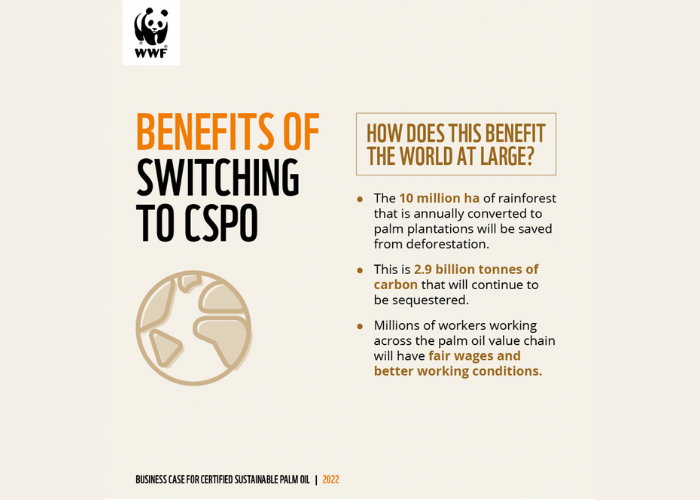WWF supports the transition to sustainable palm oilBY LAYLA NATH
- 6 December 2022
- Posted by: Competere
- Categories: highlights, News, SUSTAINABLE NUTRITION

A recent study published by the World Wide Fund for Nature (WWF) offers new insight into the palm oil supply chain. After interviewing more than three dozen stakeholders across the palm oil supply chain, the study concluded that “economic benefits that accrue for growers and buyers outweigh the financial costs involved in ensuring sustainable palm oil operations.”
Essentially, the results of this study expose the falsehood that by adhering to sustainable business practices, producers of palm oil raise the net cost – the cost of a product after all discounts and rebates, but excluding taxes – for the consumer. With the understanding that pursuing sustainable business practices does not result in additional costs, this report may encourage industry players to move towards a more sustainable industry, especially in the Asian market.
THE BENEFITS OF SWITCHING TO SUSTAINABLE PALM OIL
Moreover, WWF found that there are a number of other benefits that many growers and buyers may enjoy if they use certified sustainable palm oil (CSPO) in the various Roundtable for Sustainable Palm Oil (RSPO) supply chains. For example, stakeholders may enjoy increased market access, reduced exposure to financial, market, and regulatory risks linked with conventional business practices, and green finance (financial activity oriented around guaranteeing a better outcome for the health of the environment).
While the report serves as a tool for stakeholders when considering the value of CSPO in the supply chain in terms of costs, it also holds that switching to sustainable palm oil will ensure the industry’s resilience along the supply chain. WWF proposes a series of recommendations that will allow the transition to sustainable palm oil easier and more effective; including “higher collaboration between downstream and upstream actors to get more growers certified, innovative business arrangements, and easy access to affordable finance.”
